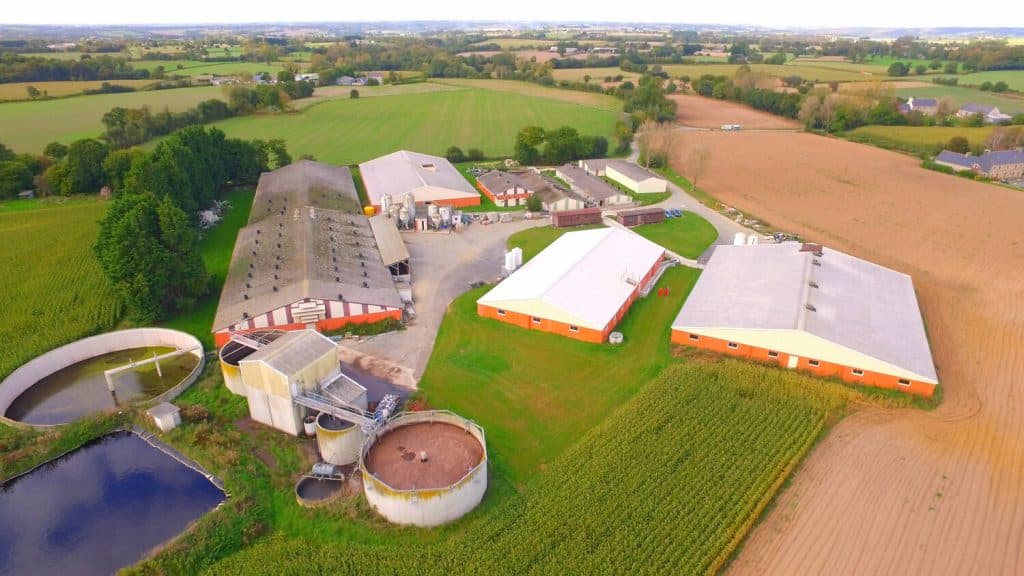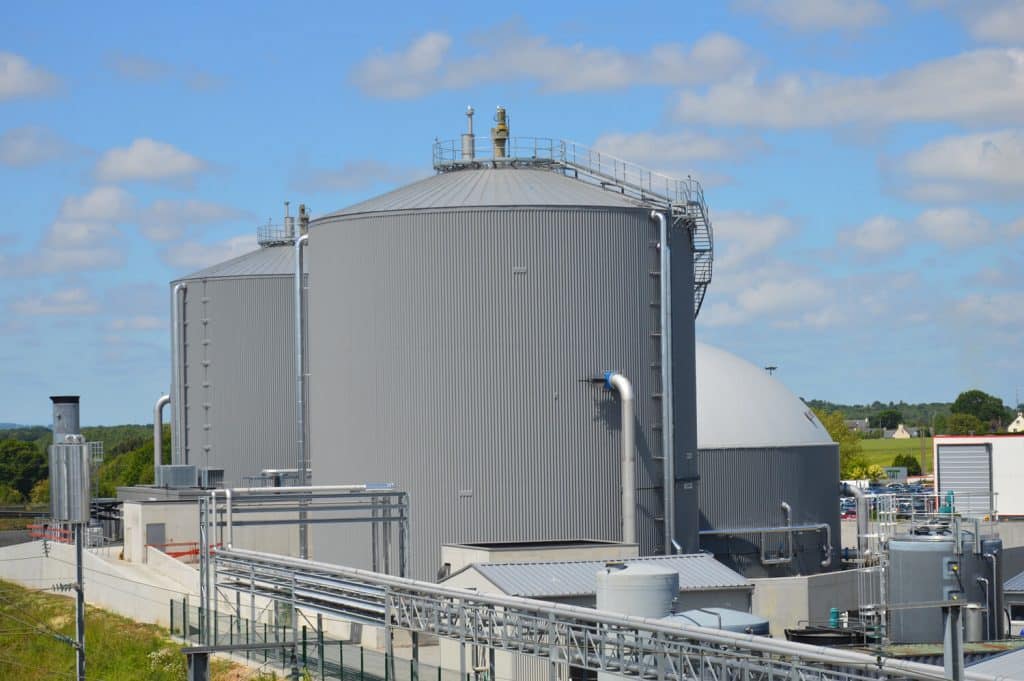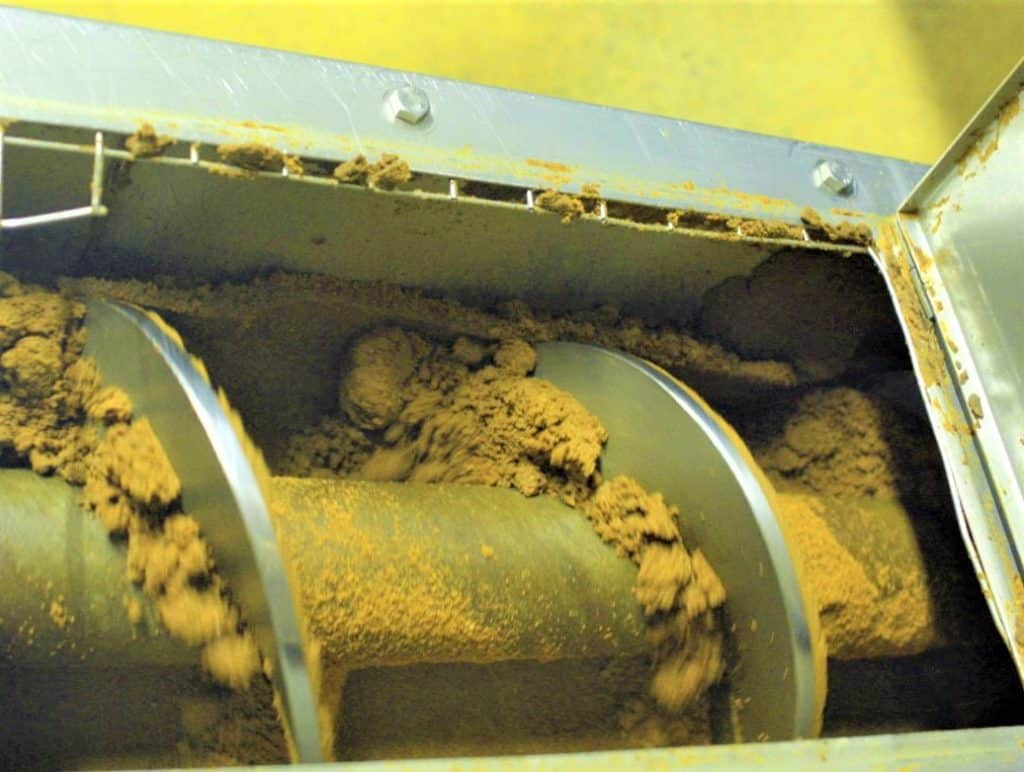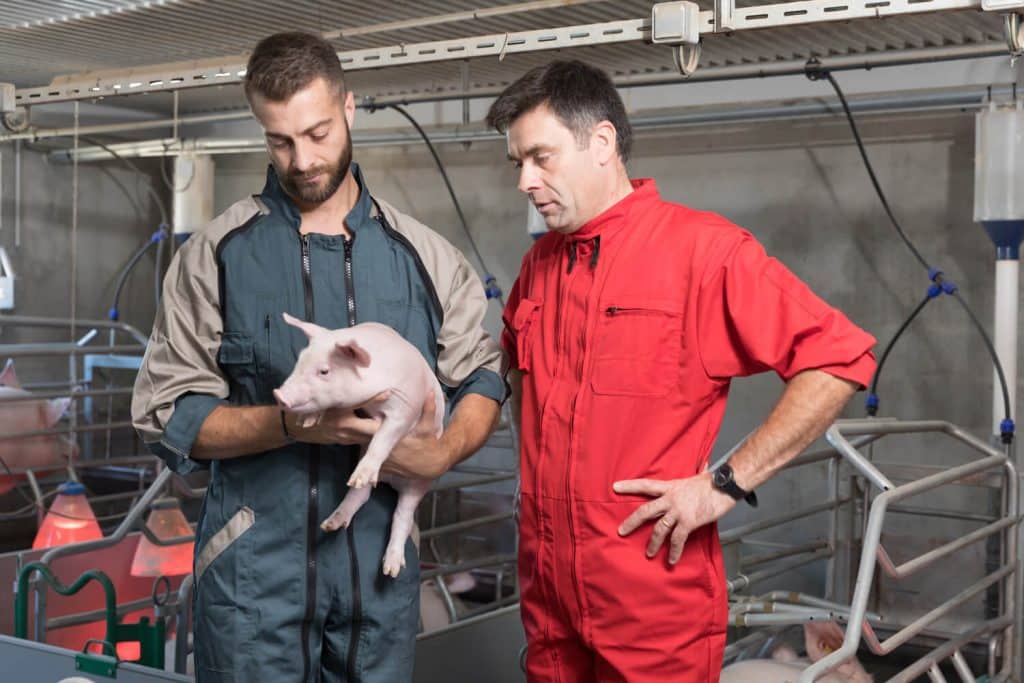Our CSR performance
The CSR (Corporate social responsibility) is described by the European Commission as the voluntary integration by companies of social and environmental concerns into their business activities and stakeholder relations.
Our dedication to sustainability has enabled us to build a unique circular ecology model, highlighting our CSR performance.

Innovative tools
Revolutionary technological tools, developed by Cooperl, and installed at its members’ sites, such as treatment stations or TRAC, make it possible to collect and treat the organic manure, used to build the Fertival range.
Once collected, this matter is dried using the steam produced sustainably at the Lamballe site.
Our methaniser, or bio-gas plant
Europe’s largest non-muck spreading methaniser (or bio-gas plant), created by Cooperl, is fueled by organic matter from the TRAC system, which is installed at hundreds of Cooperl’s members farms.
Bio-methane, resulting from purifying bio-gas, produced by methanisation, is then injected into Lamballe’s network, thus providing 75% of the town’s consumption. The digestate obtained from the process is then dried and incorporated into Fertival’s fertilisers.


The by-products
Within the circular ecology economy, co-products from the transformation of the parts of the animal that are unfit for human consumption, are used as proteins and fats in products destined for the petfood market, aquaculture and Fertival’s natural fertilisers.
Accessibility
Accessibility between the cooperative’s member farms in Western France and Cooperl’s industrial plant at Lamballe help to limit greenhouse gases caused by transportation.


Sustainable production
Cooperl is committed to sustainable production by the creation of its own network for example:
- 82% of Cooperl’s members have chosen not to castrate their animals. This process, entitled “Porc bien-être”, which promotes animal welfare, was initiated by Cooperl in 2012, helping to reduce diseases, by getting rid of an entry point for germs, and reducing the need for veterinary products. Non-castrated animals are more able to metabolise the food they ingest, which reduces food waste and Nitrogen emissions.
- More than 40% of Cooperl’s members are committed to the “Porc élevé sans antibiotique” (pigs raised without antibiotics) specifications. Cooperl was the first pork producer in France to take action, in 2014, against antibiotic resistance, which is responsible for 25,000 human deaths per year in Europe. The commitment to the removal of pesticides from farms reduces the risk of the development and transmission of resistant bacteria and preserves the balance of soil life.
- Other sectors: “Porc élevé sur paille” (pigs raised on straw with a GMO-free diet), Alternative Agriculture, Cooperl’s Environmental Charter…